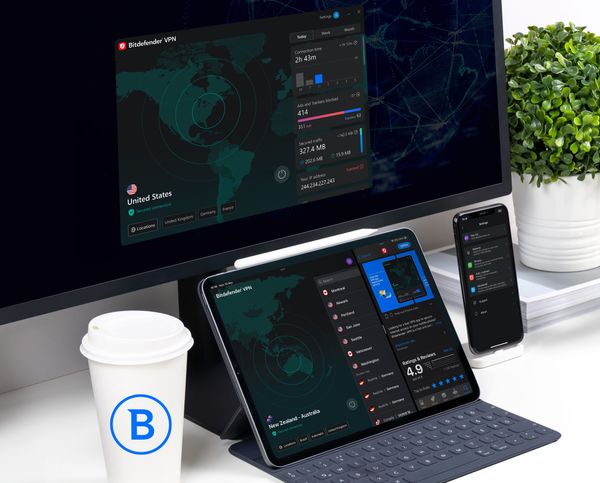How to Access Subscription-Based Services While Traveling or Working Abroad

Traveling has slowly become the activity that most people yearn for. Packing your bag and heading off to a different location seems idyllic, but there are some things you need to consider before you go.
For instance, the weather may force you to stay in your hotel room for longer than expected. In other words, you may have to use subscription-based services to cast boredom away.
However, sometimes these subscription-based services can’t be accessed from specific locations, especially if you happen to be in a country where those services are not officially available.
Some services let you access them if you register your account in a supported country, but others might not let you off the hook that easily, so you’ll have to improvise. Fortunately, there’s more than just one way to circumvent geo-restrictions and access your subscription-based services from almost anywhere.
Use a VPN
The most popular way to get the content that’s available at home is through VPN. This applies to subscription-based services, as well as websites and other types of restricted or censored online services and products.
The reason VPN excels in this situation, giving you a free pass to content if you’re in a restricted country, is that it cloaks your actual location by hiding your IP address.
A VPN routes your traffic through a secure tunnel, away from prying eyes, so that not even your ISP can detect what websites you visit or see your traffic. Furthermore, it encrypts data on your entire device (unless configured not to), making it impossible for snoops to make sense of it, should they find a way to intercept it.
By routing your traffic through its secure tunnel, a VPN makes it appear that all the traffic comes from the server you chose instead of your device, which tricks the service into misreading your location. In other words, the location of the VPN server you connect to will be the one detected by the service.
So, if your subscription service only works in the US, for instance, simply connecting to a US VPN server should be enough to slip unnoticed by the service’s filtering mechanism. Note that it’s crucial to stick to a flexible VPN solution, such as Bitdefender VPN, that offers you great coverage in server locations.
Use Proxy servers
Proxy servers are the next best thing for hiding your physical location from online services because, to some degree, they operate the same way VPN does.
You choose a server and redirect your traffic through it. After establishing the connection, your apparent IP address changes, and online services detect all requests as coming from the server’s location.
The great part about proxy servers is that there are many of them, and most are free, making them accessible to everyone. But their accessibility is also their downfall, seeing as many users abuse proxy servers to the point where it’s almost impossible to find one that’s not overcrowded.
Proxy servers that run at capacity are generally slower, and connection speed is paramount if you’re trying to stream multimedia content. Keep in mind that “free” access to this service is not entirely free – you might just paying for the service with your personal information, which is exactly what you’re trying to keep away from the internet. Many such services can operate freely because they monetize your data. Last but not least, free proxy servers are usually easy to detect and blacklist by online services.
If you want to take this road, we recommend picking a private proxy provider. Unlike most free proxy servers, private ones also offer encryption, are much faster, and online services find it harder to detect and block them.
Use Smart DNS
Smart DNS proxy is one of the least known ways to navigate around locally-unavailable content. It works by replacing your ISP-assigned DNS with a private one but leaves your IP untouched.
It also strips your traffic of all identifiable information regarding your physical location so that online services can’t detect it and restrict your access.
Of course, things are a bit more technical than that, but here’s all you need to know: changing your default DNS is perfectly legal and reversible, and it’s the fastest way to get to the web resources you want.
However, if you’re concerned about privacy, you should know that, unlike proxy and VPN, smart DNS services offer no encryption. While this means it won’t slow down your connection, it also means that snoops can monitor your traffic and know your online whereabouts if they have the means.
Smart DNS doesn’t hide your IP address either, so if you’re concerned about leaking IP details to anyone online, you might want to reconsider.
Use Tor
Tor is one of the most popular ways to hide your real location and access restricted content, but it’s not a viable option to unblock access to web resources.
If you’re traveling and just want to browse a geo-restricted page from your current location, Tor will work just fine. However, its slow connection speed will make streaming media content on your device impossible.
It also provides you with a decent amount of privacy. Still, due to its involvement in numerous illicit activities, Tor has become notorious among authorities, which now spend significant resources monitoring nodes in the service’s connection. Additionally, TOR access can be detected and blocked by Internet service providers and gateway operators.
Remember to clear cookies
VPN, proxies and Smart DNS are popular ways to access subscription-based services while traveling. However, it can be hit-and-miss, even while using these tools.
Note that clearing cookies and using Incognito mode on your browser could increase your chances of success, but they’re not guaranteed to work either.
Make sure to plan ahead and stock up on local content before you travel. If all else fails, you’ll be glad to have this safety net to fall back on.
tags
Author

Vlad's love for technology and writing created rich soil for his interest in cybersecurity to sprout into a full-on passion. Before becoming a Security Analyst, he covered tech and security topics.
View all postsRight now Top posts
How to Protect Your WhatsApp from Hackers and Scammers – 8 Key Settings and Best Practices
April 03, 2025
Outpacing Cyberthreats: Bitdefender Together with Scuderia Ferrari HP in 2025
March 12, 2025
Streamjacking Scams On YouTube Leverage CS2 Pro Player Championships to Defraud Gamers
February 20, 2025
How to Identify and Protect Yourself from Gaming Laptop Scams
February 11, 2025
FOLLOW US ON SOCIAL MEDIA
You might also like
Bookmarks








